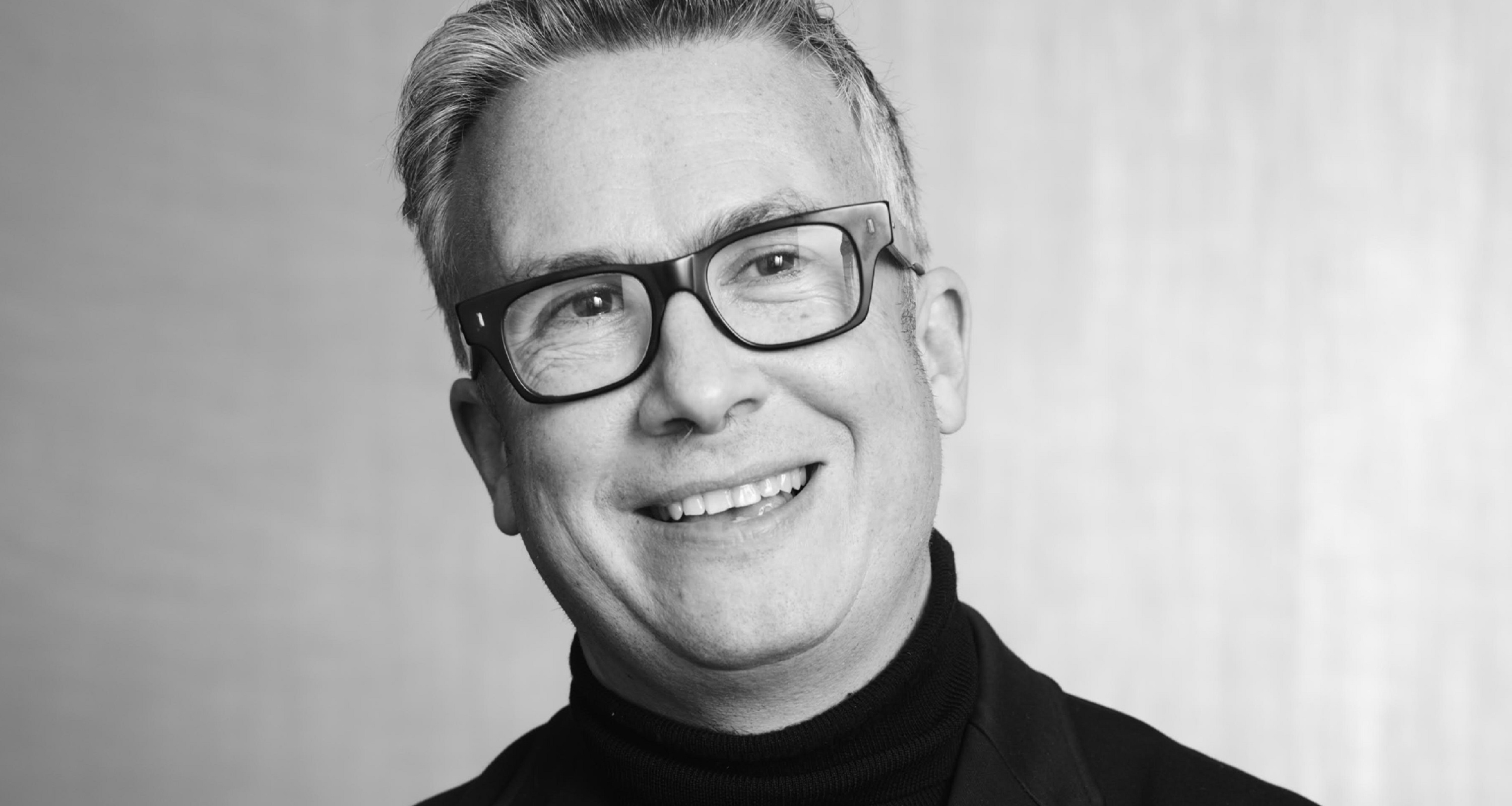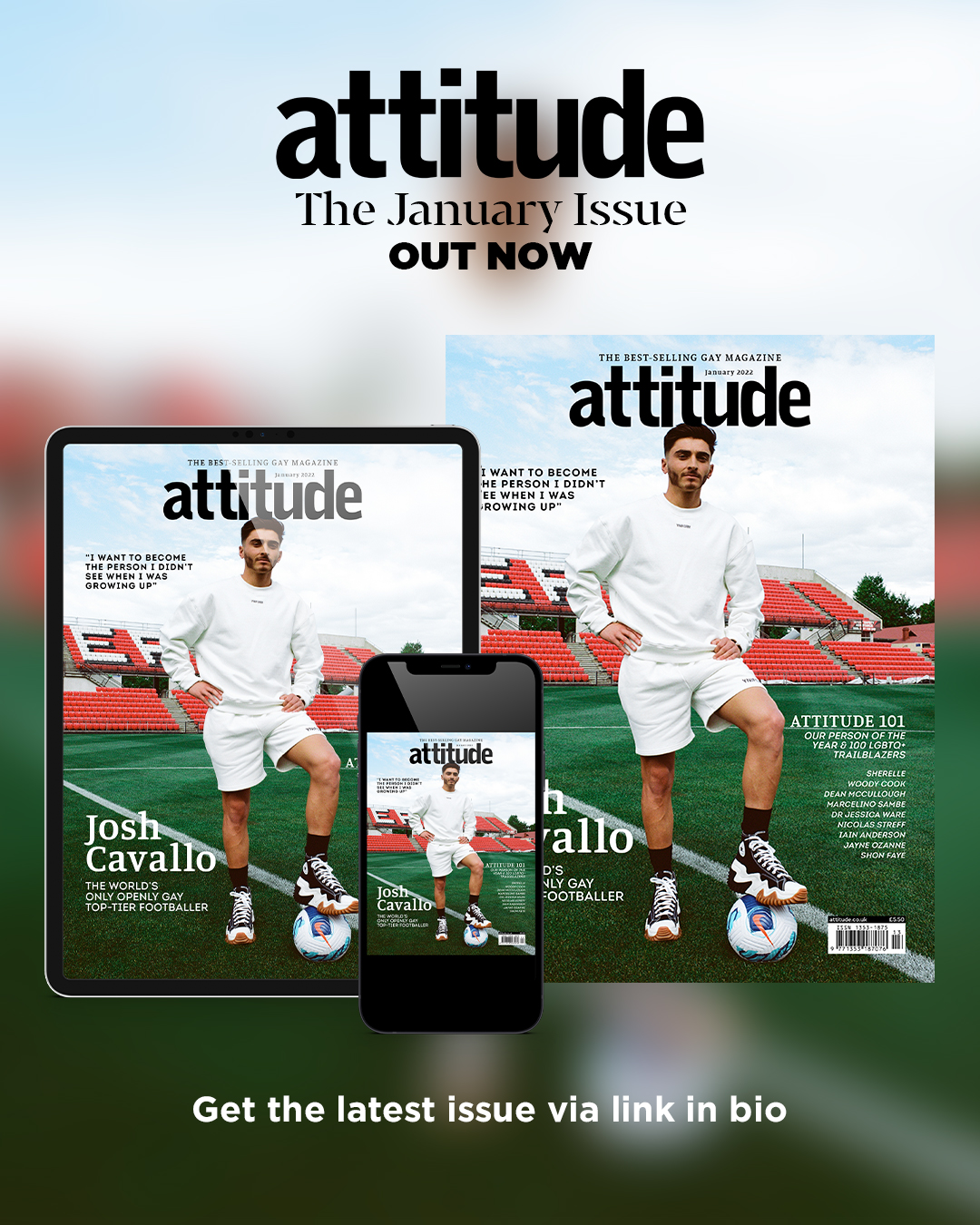UK government’s LGBT Business Champion vows to call out corporate ‘pink-washing’
Iain Anderson leads the Attitude 101 Business, Financial and Legal category.

Words: Dan Hastings; pictures: Provided
For ten years, consultant Iain Anderson hid his sexual identity from his clients, despite being out to his friends and family. Working with a range of collaborators including politicians and CEOs of international firms, he did not dare be himself in the boardroom.
Decades later, the public policy and corporate communications expert, who is a co-founder and executive chairman at Cicero/AMO, wants to use his new role as the UK government’s first LGBT Business Champion to make workplaces more inclusive so that no one has to put on an uncomfortable disguise in the office.
As such he’s the leader of the Business, Financial and Legal category in the Attitude 101 issue, empowered by Bentley. You can check out the full list and interviews with some of those included in the Attitude 101 issue – out now to download and to order globally.
Anderson certainly has the credentials for the job. A Financial Times Male Champion of Women in Business and a Stonewall Ambassador, he is on the Queer Britain advisory board and is also a trustee of global LGBT rights charity, GiveOUT.
In September, you were appointed the first-ever UK Government LGBT Business Champion by Liz Truss, the then Minister for Women and Equalities. Why you?
I identify as a gay man and I’ve long been involved in LGBTQ+ activism, but I have also been running my own business for most of my life. When I was asked to take this on, I thought, wow, this could be a gigantic thing to do. I’m not a government minister, I’m not a party politician, so it’s the perfect thing for me and it brings two of the very big parts of me together.
What do you plan to achieve in the next few months in your new role?
My first priority is to look at the evidence that is out there in terms of LGBTQ+ policies at work. What we have discovered so far is that there’s not an awful lot of records of them. So, what we have been doing is getting out and about across the country to gather case studies for the government. We will later use these to get politicians to write better policies supporting LGBT folks at work. I also want to create a mentoring network that includes both small and large companies who will share the materials they produce and the policies they have drafted that worked for their queer employees.
A 2018 report by Stonewall concluded that more than a third of LGBT staff (35 percent) have hidden that they are LGBT at work for fear of discrimination. What was your experience of coming out at work?
For the first ten years of running my consulting business, I was out to my friends and family, but I was not out to my clients because I was concerned about how they might react when doing business with me. No one should have to put a mask on when going to work. What we need to do is bring these worrying examples to light. We need to ask companies why that is the case. It’s fine having a Pride group and tremendous mission statements, but that becomes a bit meaningless if somebody turns around and says, “I can’t actually be myself.”
Also, if you look at some of the Stonewall data, there will be a percentage that doesn’t want to be out, and this is fine as we are not about forcing people out of the closet.

What can you do to put more pressure on companies whose employees don’t feel comfortable coming out?
I’m going to call out businesses that only engage in pink-washing rather than doing something meaningful. This needs to be embedded throughout the organisation, not just within the leadership at the top — although that’s important.
The UK will host Safe To Be Me, a global equality conference on LGBT rights in June 2022.
We’re spending quite a lot of time working with large businesses and small businesses across lots of sectors already to tell them about the conference, to encourage them to get involved as we’re going to create a business hub there. By committing to the global conference that the UK is going to host next year, they can answer their investors, their staff, and their customers by signalling a commitment to all LGBT people at work. The conference is going to focus on several targets including access to public services and international LGBTQ+ rights.
Isn’t there a risk calling a conference “Safe To Be Me” when the number of homophobic attacks recorded in the UK trebled over the past five years, according to police statistics?
One of the commitments of the summit is going to be about ending violence and abuse. When we get to that conference, a bit like COP26, we must see there’s no tolerance of violence and abuse. Companies, governments, and legislation will address what’s going on here in the UK. Safe To Be Me has to be real—we need to see some kind of commitment in the end.
How can you unite our LGBTQ+ community when an LGB minority is extremely violent in regards to trans individuals and their rights?
I see that word, ‘Champion’ for LGBT at work as a Champion for all LGBT people, all of them. Some of our major companies are doing some trailblazing work with their trans collaborators. They’re working towards acceptance and creating inclusion, as we discover more and build more evidence about what works. I think we could learn a lot from employers — of large and small companies — who are way ahead of governments.
You’re an avid football fan, how do you explain that coming out at work remains impossible for most football players in 2021?
My agenda doesn’t naturally include sports, however, we should have a conversation with the Premier League. Football clubs are multi-billion-pound businesses, and we need to ask them, but also other parts of sports, what they are doing as businesses to create inclusive workplaces. I’m going to add that to the list. The Premier League has done amazing things to support campaigns like Rainbow Laces or No Room For Racism, but the problem is we don’t have an iconic gay footballer that is currently playing. We’ve got one fantastic example with Ryan Atkin who is a well-known gay referee, but he needs to have more light put on him to demonstrate the change taking place.
What’s the greatest lesson you have learned in your career?
Always look forward. Many of your readers, like me, have faced an awful lot of challenges in their lives, and sometimes when you hit those challenges you can get frozen and want to stop. Don’t stop. Keep going. Keep looking forward, because I think every single day you can make a change. I felt that in my career, in this role, and in terms of LGBT achievements, you only get progress if you keep on going.
Check out the full, detailed list in the Attitude 101 issue, which is out now to download and to order globally. The Attitude 101 issue includes the FREE Attitude 2022 calendar, presented in association with Taimi.
Subscribe in print and get your first three issues for just £1 each, or digitally for just over £1.50 per issue.

